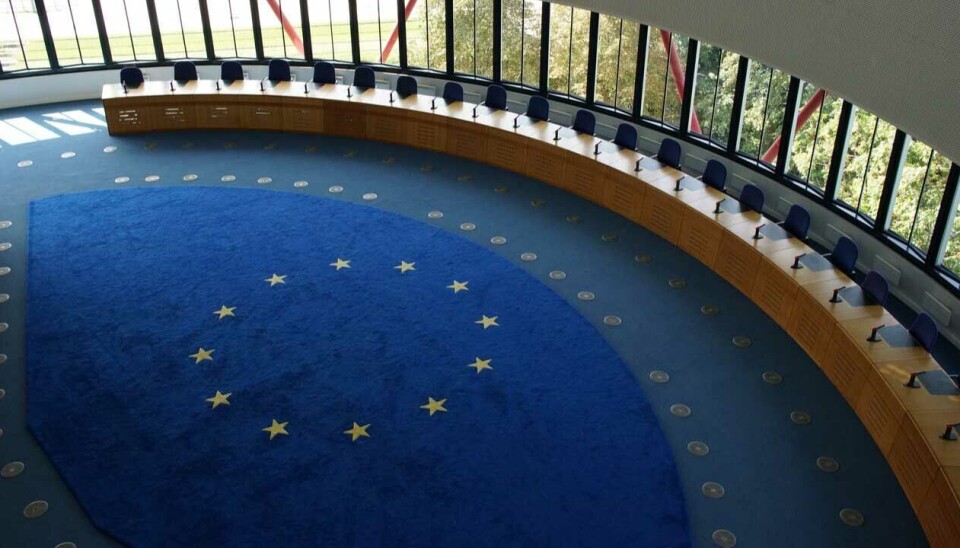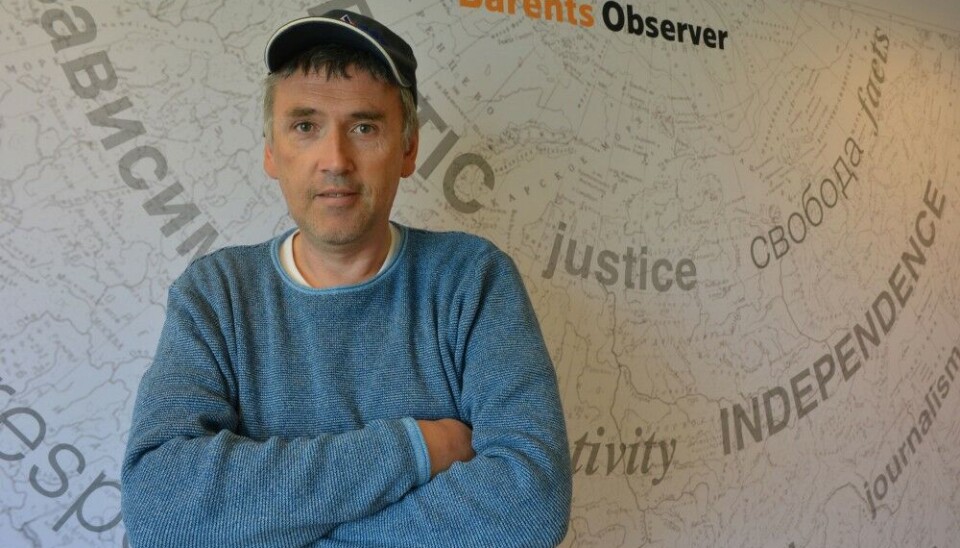
The Barents Observer beats Russia in European court
The European Court of Human Rights (ECtHR) has ruled in favour of the small Norwegian newspaper in the case against Russia's censorship agency Roskomnadzor.
Four and a half year after the media outlet took Roskomnadzor to the court in Strasbourg, the ECtHR rules in favour of the Norwegians.
In its verdict, which includes the Barents Observer and several other media, the court maintains that Russia has violated Article 10 of the European Convention on Human Rights. The article addresses freedom of expression and the media.
The case 'Barents Observer vs Roskomnadzor' started after the censorship authority in February 2019 blocked the newspaper on Russian territory.
The Barents Observer first appealed the repressive measure in a Russian court. After a loss, a new appeal was filed and subsequently rejected by the Moscow City Court in January 2020. In June 2021, the case was rejected by the Russian Supreme Court, whereupon the case was taken to Strasbourg.
The case has been supported by the Anti-Discrimination Centre Memorial based in the Brussels. It has been run by lawyer Maksim Olenichev.
“We are very glad that the ECtHR has delivered a ruling in the case," says Editor of the Barents Observer Thomas Nilsen.
“It is of principal importance to have a court ruling clearly saying Russia is not allowed to block the Barents Observer,” he underlines.

The Barents Observer is the only media in Norway that publishes in Russian, in addition to English. Since it was established in 2002, the newspaper has comprehensively covered developments in the European and Russian North, including the heavily militarised Kola Peninsula.
“We are based in Norway, and the dictatorial regime in Moscow has no rights to interfere with what we write or not write,” says Thomas Nilsen. He underlines that the newspaper will continue to fight against censorship.
“Now we have won a juridical victory, but our fight to circumnavigate the censorship wall continues. So far, the Barents Observer is one step ahead of the Kremlin and still reaches thousands of readers, viewers and listeners inside Russia. But this is a technological race that continues.”
Nilsen believes cases like the 'Barents Observer vs Roskomnadzor' are important for democracy and press freedom in a future Russia.
“The ruling in Strasbourg might not have any direct implications for us today, but we still think it is very important for a future Russia that one day might come out of the darkness and again choses to follow the rule of law. In such a moment, journalistic freedom and a clear court decision that independent media like the Barents Observer can’t be blocked for writing the truth, will help guide the future.”
The Barents Observer is based in Kirkenes, the Norwegian town located only a few kilometres from Russia. It is owned by journalists.
In a statement, the Anti-Discrimination Centre Memorial underlines that the verdict is an important victory in the fight against discrimination and injustice.
"ADC Memorial congratulates Barents Observer with the ruling of ECHR that once again shows the wrongness of silencing minorities rights activists voice. The Barents Observer has given a voice to LGBT+ and ethnic minority representative and got blocked in Russia for that," says Stephania Kulaeva, an expert with ADC Memorial.
According to Maksim Olenichev, the Barents Observer was targeted by Roskomnadzor because it was not afraid to raise sensitive issues.
"In this case, the Russian authorities exercised censorship by demanding that the Barents Observer remove content they did not like under threat of blocking the media outlet's website. Information about LGBT people and indigenous peoples, whose rights the Russian authorities have been particularly active in suppressing in recent years, was the trigger for the authorities in the case. Such information, as disseminated by the Barents Observer, is sensitive to the Russian authorities because of the state-sponsored policy of homophobia and restriction of indigenous peoples' rights," he comments.
The verdict has relevance across Europe.
"The court found that the Russian authorities had violated Article 10 of the Convention for the Protection of Human Rights and Fundamental Freedoms and found that The Independent Barents Observer's right to freedom of expression had been violated. This means that such situations should not occur in a democratic state that respects the principles of human rights. This judgement has implications for all 46 member states of the Council of Europe: they must take into account the legal positions of the ECtHR, regardless of the state that was the defendant in the case," Olenichev adds.
Following its full-scale invasion of Ukraine, Russia was expelled from the Council of Europe. Six months later, the country ceased to be party to the European Convention on Human Rights.
Although Russia is out of the European organisation, the ECtHR continues to handle applications against the country concerning actions or omissions recorded before 16 September 2022. At the time, 17,450 applications against Russia were pending before the Court.
The verdict of the ECtHR includes a €7,500 award to the Barents Observer for damages and costs. If it were still a party to the Convention, Russia would have had to pay this sum.













